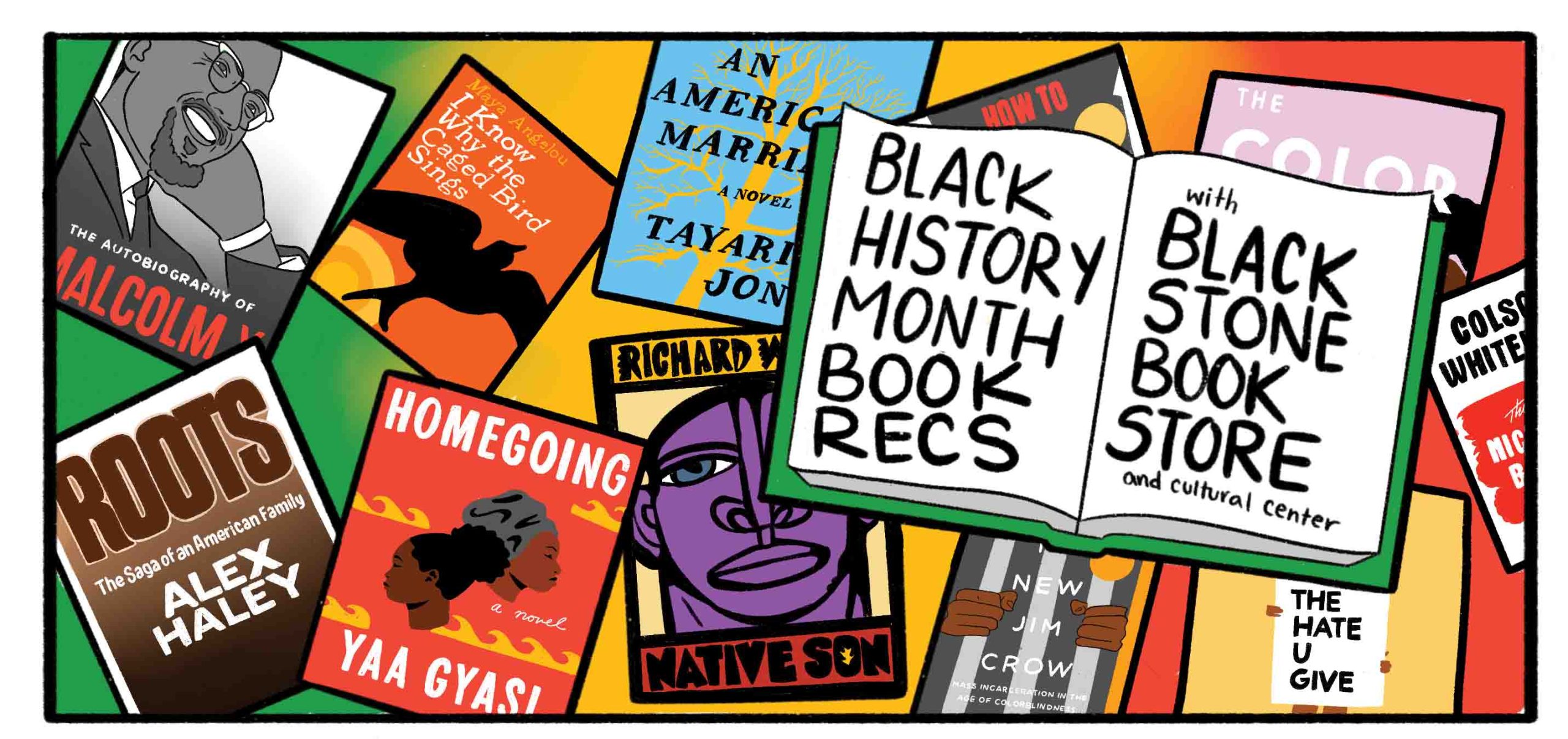Carlos Franklin, co-owner of Blackstone Bookstore & Cultural Center offers his best reading recommendations
Charlie Todd
Contributor
Though February may be coming to a close, it’s not too late to pick up a book and learn more about Black history. Carlos Franklin, co-owner of Black Stone Bookstore in Ypsilanti, underscored the importance of diversity in literature.
Franklin said he grew up seeing bookstores and libraries filled with little Black representation. He hadn’t set out to create a Black bookstore, but now his store is crammed with stories written by a majority of Black authors.
“I wanted books that look and sound like me,” Franklin said.
Here are some recommendations from Franklin that he thinks best represent the Black experience throughout history.
Franklin’s suggestions
“Roots: The Saga of an American Family” by Alex Haley (1976)
Historical Fiction, Biography
The story was inspired by Haley’s search for his own roots and finding a trove of oral histories when visiting his ancestral village. There, Haley learned of his ancestor, Kunta Kinte. Kinte is the main character of the family epic, as the story follows his upbringing in Africa through the slave trade and into the American South. There, he is faced with the harsh realities of slavery, a famous scene being that of his renaming to Toby, a “White name.” In the final chapter, Haley goes into great detail about preserving the accuracy of his lineage. Because of this, the book sold both as fiction and non-fiction, coining the term “faction.”
“Homegoing” by Yaa Gyasi (2006)
Historical Fiction, Family Saga
Franklin described this historical fiction novel as a “modern retelling” of “Roots”. Similarly to Alex Haley, the Ghanaian-American author was inspired when she visited Ghana and learned of “slave castles.” These structures were elaborate palaces for White slave traders to live in, but the basements were dungeons for captured locals set to be transported to America. Gyasi’s story begins with two sisters torn apart by the slave trade. Each chapter follows the descendants of these sisters as their family lines experience slavery, Jim Crow, the Great Migration, and the Harlem Renaissance. Similar to “Roots”, the novel ends with Gyasi’s description of her inspirational trip to Ghana. This brings the story to a perfectly cyclical end.
“I Know Why the Caged Bird Sings” by Maya Angelou (1969)
Autobiography, Non-Fiction
At the peak of American unrest during the Civil Rights Movement, Angelou was deeply affected by the assassination of Martin Luther King Jr. and wanted to write an autobiography that could double as a piece of poignant literature. Her book begins when Angelou was only three years old and living in Arkansas and ends when she is a pregnant teen. The work follows Angelou’s development from meekness into a strong, proud woman. She experiences sexual assault, brutal racism and generational trauma as she navigates her way through life as a Black girl in the American South. The title represents the resistance to oppression Angelou ultimately faced with poise and dignity. In a poem, she likens the bird’s singing to roaring at the bars of his cage and not singing “a carol of joy or glee.”
“The Autobiography of Malcolm X” by Malcolm X (1965)
Autobiography, Political Philosophy
Released nine months after his assassination, Malcolm X’s autobiography explains his philosophy on pan-Africanism, Black nationalism and pride and critiques of the Civil Rights Movement. The book’s epilogue was written by “Roots” author, Alex Haley, to describe the events leading up to the assassination. The autobiography is based on a series of interviews Haley had conducted in the final two years of his life. Malcolm X uses his own words to describe his life, beginning as a child in Nebraska and moving seamlessly through X’s experiences with gangs, his imprisonment, and conversion to Islam. Franklin recommended this book because of the insights it offers into the Black Power Movement.
These titles and more are available at Black Stone Bookstore & Cultural Center. Visit www.blackstonebookstore.com/ for more information.



